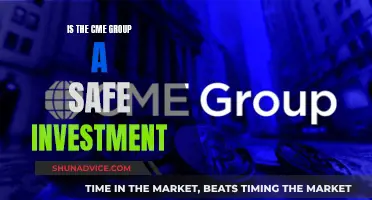
Investment managers are fiduciaries who are legally and ethically bound to act in their clients' best interests. They are entrusted with discretionary power over client portfolios and must exercise due skill, care, and diligence in their duties. To become an investment manager, a provider must have independent decision-making power over all plan assets, be a registered investment advisor, and acknowledge in writing their fiduciary status. This fiduciary responsibility extends to considering long-term risks and opportunities, including environmental, social, and governance (ESG) criteria, to align investments with ethical values and mitigate risks that could impact financial returns.
| Characteristics | Values |
|---|---|
| Definition | A fiduciary is a person or organisation that acts on behalf of another and is legally and ethically bound to put the client's interests ahead of their own. |
| Examples | Money managers, financial advisors, bankers, insurance agents, accountants, executors, board members, corporate officers, and investment managers. |
| Investment fiduciary definition | Anyone with legal responsibility for managing someone else's money. |
| Investment manager definition | A provider that satisfies three requirements: has independent power to make decisions about all plan assets, is a registered investment advisor/bank/insurance company allowed to operate in multiple states, and acknowledges in writing that they are one of the plan's fiduciaries. |
| Fiduciary duties | To act in the best interest of the client, to avoid conflicts of interest, and to not profit from their position without client consent. |
| Fiduciary risks | Fiduciary risk refers to the possibility of a fiduciary not optimally performing in the client's best interests, while fiduciary abuse/fraud involves unethical or illegal use of power to benefit financially. |
| ESG considerations | Environmental, social, and governance (ESG) issues are increasingly viewed as financial risks that impact investment performance, influencing legislative and regulatory changes. |
| ERISA and co-fiduciary liability | The Employee Retirement Income Security Act (ERISA) grants fiduciary status to investment managers, providing special protections and a liability firewall between them and appointing fiduciaries. |
What You'll Learn

Investment managers are fiduciaries
To be considered an investment manager, a provider must satisfy three requirements: they must have independent power to make decisions about all plan assets, be a registered investment advisor, bank, or insurance company allowed to operate in multiple states, and acknowledge in writing that they are one of the plan's fiduciaries.
Investment managers owe duties to their clients where they exercise discretionary power over client portfolios. These duties fall into four main categories: a tortious duty to exercise due skill, care, and diligence, fiduciary duties of trust and loyalty, contractual duties as set out under the Investment Management Agreement (IMA), and duties arising from the regulatory framework.
The core duties that a fiduciary must uphold at all times are: a duty to avoid acting where there is a conflict between the fiduciary's duty and their own interests, or a conflict between duties owed to multiple principals (the "no conflict rule"), and a duty not to make an unauthorised profit from their position (the "no profit rule").
In the context of investment management, this means that investment managers must act in the best interests of their clients or beneficiaries when making investment decisions. They must also consider long-term risks and opportunities, including environmental, social, and governance (ESG) criteria, which can impact financial returns.
By delegating their authority to an investment manager, plan fiduciaries can benefit from the manager's independent decision-making authority and specialised skills. This modern approach to trust law allows for greater flexibility and can help protect clients from potential liability.
Savings Accounts: Invest or Save?
You may want to see also

Fiduciary duty and ESG issues
Fiduciaries are legally and ethically bound to act in the best interests of their clients or principals. In the context of investment management, fiduciaries such as financial advisors and fund managers are responsible for managing their clients' money and making investment decisions on their behalf. Fiduciary duties in this context include the duty of care, the duty of loyalty, and the duty to act in good faith.
When it comes to Environmental, Social, and Governance (ESG) issues, there has been a growing trend for investors to consider these factors in their investment decisions. ESG investing involves incorporating environmental, social, and governance metrics into investment strategies. However, the integration of ESG factors into investment decision-making has sparked debates about whether it conflicts with fiduciary duties.
One of the main arguments against ESG investing is that it prioritises moral or ethical considerations over financial performance, which could be seen as a breach of fiduciary duty. Traditionally, institutional investors have focused solely on financial returns, dismissing ESG issues as non-financial factors that should not influence investment decisions.
However, there is a growing movement that recognises ESG issues as financial risks that can impact investment performance. This shift in perspective has led to legislative and regulatory changes, particularly in the UK and EU, clarifying that ESG issues are financially material. For example, the EU Sustainability-related Disclosures Regulation defines 'sustainability risk' as an ESG event that could cause a negative impact on investment value.
Proponents of ESG investing argue that considering ESG factors is consistent with fiduciary duties, especially when these factors are aligned with the objectives of the investment portfolio. They suggest that ESG considerations can contribute to achieving the client's financial objectives and promote long-term sustainable value creation. Additionally, ESG factors can help identify risks and opportunities that could affect financial returns, which is in line with a fiduciary's duty to act in the best interests of their clients.
On the other hand, critics of ESG investing highlight the lack of standardisation and clarity in ESG methodologies and ratings. The absence of consistent definitions and metrics makes it challenging to determine whether ESG-compliant companies are truly delivering on their environmental, social, and governance commitments. This ambiguity has fuelled concerns about "greenwashing" and the potential for investors to be misled.
To address these concerns, regulatory bodies in various jurisdictions are working towards establishing standardised methodologies and disclosures for ESG investing. For instance, the US Securities and Exchange Commission (SEC) has directed funds and corporations to provide disclosures on climate change matters. Similarly, the UK's Financial Conduct Authority (FCA) has set expectations for regulated financial firms to integrate climate change risks and opportunities into their investment decisions.
In conclusion, the relationship between fiduciary duty and ESG issues is complex and evolving. While there are arguments on both sides, the increasing focus on ESG factors in investment decisions underscores the need for clear and consistent regulatory frameworks. Fiduciaries must stay informed about the latest legislative and regulatory developments to ensure they act in their clients' best interests and mitigate potential legal risks.
Saving and Investing: Biblical Principles for Financial Wisdom
You may want to see also

Fiduciary duty and financial advisors
Financial advisors and investment managers are both considered fiduciaries, meaning they are legally and ethically bound to act in their clients' best interests. This fiduciary duty requires them to put their clients' interests ahead of their own and involves managing their clients' assets or providing financial advice. Fiduciaries are responsible for preserving good faith and trust in their relationships with clients.
The main difference between financial advisors and investment managers lies in their level of decision-making authority. Investment managers have independent power to make decisions about all plan assets and are explicitly granted fiduciary status by ERISA (Employee Retirement Income Security Act). On the other hand, financial advisors typically reject decision-making authority and limit their duties to providing advice and educational services. They become fiduciaries under a catch-all provision and can limit their liability by reducing the scope of their fiduciary duty.
It is important to note that both financial advisors and investment managers are subject to certain standards of care. The "prudent person standard of care" stems from the 1830 Harvard College vs. Armory court ruling and requires fiduciaries to act in the best interest of their clients. Additionally, the fiduciary must ensure that no conflict of interest arises between themselves and the client.
In terms of liability, co-fiduciary liability applies when one fiduciary knowingly participates in or conceals a breach, enables another fiduciary's breach, or knows about a breach and does not make a reasonable effort to fix it. While ERISA provides a liability firewall for investment managers, protecting the people who appointed them, no such protection exists for financial advisors.
When it comes to Environmental, Social, and Governance (ESG) issues, there has been a shift towards viewing these factors as financial risks that impact investment performance. As a result, legislative and regulatory changes in the UK and EU seek to clarify that ESG issues are financially material. This may impact the interpretation of investment managers' fiduciary duties, as they are now expected to consider ESG factors in their investment decision-making.
Breaking into Investment Management: An ASU Student's Guide
You may want to see also

Fiduciary duty and co-fiduciary liability
Investment managers are fiduciaries and are thus legally and ethically bound to act in their clients' best interests. Fiduciaries are persons or organisations that act on behalf of others and are required to put their clients' interests ahead of their own.
Fiduciary duties appear in various business relationships, including between a trustee and a beneficiary, corporate board members and shareholders, and executors and legatees. An investment fiduciary is anyone with legal responsibility for managing someone else's money.
Registered investment advisors and insurance agents have a fiduciary duty to their clients. In the United States, the Employee Retirement Income Security Act (ERISA) explicitly grants fiduciary status to investment managers, assigning them and their clients special protections.
According to ERISA, co-fiduciary liability applies to every fiduciary who either knowingly participates in or conceals a breach, enables someone else's breach by committing their own, or knows about a breach and does not make a reasonable effort to fix it. ERISA places a liability firewall between investment managers and the people who appoint them, which means that the appointing fiduciary cannot be held liable for knowingly participating in or concealing a breach.
The core duties that a fiduciary must uphold at all times are:
- A duty to avoid acting where there is a conflict between the fiduciary's duty and their own interests, or a conflict between duties owed to multiple principals ("no conflict rule").
- A duty not to make an unauthorised profit from the fiduciary's position ("no profit rule").
These are negative duties, proscribing a fiduciary from engaging in disloyal or dishonest conduct. While there may also be a positive duty for the fiduciary to act in the best interests of the principal, this can be viewed as a combination of the established duties rather than a separate duty.
Fiduciaries are legally bound to put their client's best interests ahead of their own. Fiduciary negligence is a form of professional malpractice when a person fails to honour their fiduciary obligations and responsibilities.
A Guide to Investing in Managed Funds
You may want to see also

Fiduciary duty and regulatory changes
An investment manager is a fiduciary, and as such, they are legally and ethically bound to act in their client's best interests. This means putting the client's interests ahead of their own and preserving good faith and trust. Fiduciary duties are ongoing and continuous, requiring the investment manager to always act with the client's best interests in mind.
In the United States, the Employee Retirement Income Security Act (ERISA) explicitly grants fiduciary status to investment managers, providing special protections for them and their clients. To be considered an investment manager and gain this status, a provider must satisfy three requirements: they must have independent power to make decisions about all plan assets, be a registered investment advisor, bank, or insurance company allowed to operate in multiple states, and acknowledge in writing that they are one of the plan's fiduciaries.
The duties of investment managers fall into four main categories: a tortious duty to exercise due skill, care, and diligence, fiduciary duties of trust and loyalty, contractual duties set out under the Investment Management Agreement (IMA), and duties arising from the regulatory framework. The interplay between these duties is significant, with the principles of fiduciary and tortious duties influencing the regulatory framework and regulatory rules helping define the scope of duties applied at common law.
One notable development in the regulatory landscape is the growing emphasis on Environmental, Social, and Governance (ESG) criteria. There has been a shift in thinking among industry stakeholders, policymakers, and regulators towards viewing ESG issues as financial risks that impact investment performance. This has resulted in legislative and regulatory changes, particularly in the UK and EU, seeking to clarify that ESG issues are financially material. This, in turn, may impact the interpretation of investment managers' fiduciary duties and their contractual and tortious duties.
The amended Occupational Pension Scheme (Investment) Regulations 2005 (OPS Regulations) in the UK define "financially material considerations" as including ESG factors, providing a statutory basis for the consideration of ESG in investment decision-making. Additionally, the EU Sustainability-related Disclosures Regulation defines "sustainability risk" as an ESG event that could cause a material negative impact on the value of an investment, further emphasising the financial relevance of ESG factors.
The regulatory framework concerning climate change and other ESG issues continues to evolve, and investment managers must stay apprised of these changes to ensure they meet their fiduciary duties. While historically, institutional investors have viewed their duties as defined exclusively by the pursuit of financial returns, the integration of ESG considerations into investment decision-making is gaining traction as a long-term investment value driver. This shift in perspective highlights the dynamic nature of fiduciary duties and the need for investment managers to stay informed about regulatory changes that may impact their obligations to their clients.
Invest Wisely: Understanding Managed Futures for Beginners
You may want to see also







